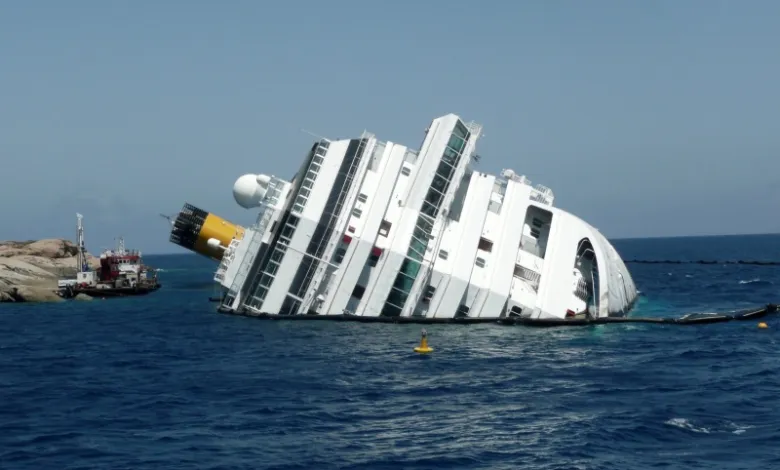In the aftermath of a maritime accident, you may be adrift in a sea of uncertainty. The steps you take immediately following an incident at sea can profoundly impact your legal rights and potential compensation. This guide will navigate you through the critical actions after a maritime accident, ensuring you protect your interests and comply with maritime law. From documenting the scene to reporting the incident to consulting with a maritime injury lawyer in Houston, TX, we’ll outline the key steps to make all the difference in your case.
Seek Medical Attention Immediately After a Maritime Accident
Prioritize Your Health and Safety
In the aftermath of a maritime accident, your first and most crucial step is to seek immediate medical attention. Even if you feel fine, some injuries may not be immediately apparent. Prompt medical care ensures your well-being and creates an official record of your condition, which can be vital for future legal proceedings.
Follow-up Care is Crucial
Don’t neglect follow-up appointments or recommended treatments. Consistent medical care demonstrates the seriousness of your injuries and can prevent insurance companies from claiming that you exaggerated your condition. It also provides a clear timeline of your recovery process, which can be crucial in determining fair compensation.
Document the Accident and Your Injuries
In the aftermath of a maritime accident, thorough documentation is crucial for your legal case. A maritime injury lawyer in Houston, TX, will need comprehensive evidence to build a strong claim on your behalf.
Gather Visual Evidence
Immediately after the incident, take photos and videos of the accident scene if possible. Capture any hazardous conditions, equipment malfunctions, or environmental factors that may have contributed to the accident. Don’t forget to document your injuries, as this visual evidence can be powerful in illustrating the extent of your damages.
Record Witness Information
Collect names and contact details of any witnesses present during the accident. Their accounts can provide valuable third-party perspectives that corroborate your version of events. Ensure crew members’ or supervisors’ statements regarding the incident.
Notify Your Employer and File an Accident Report
After a maritime accident, you should notify your employer and file a detailed accident report. This step is crucial for protecting your rights and ensuring proper incident documentation.
Immediate Notification
Inform your immediate supervisor or the ship’s captain about the accident as soon as it’s safe. Many maritime companies have specific protocols for accident reporting, so familiarize yourself with these procedures beforehand. Remember, timely notification can significantly impact your ability to seek compensation later.
Comprehensive Accident Report
When filing your report, be thorough and accurate. Include:
- Date, time, and location of the accident
- Detailed description of the incident
- Names and contact information of witnesses
- Any injuries sustained or property damage
- Environmental conditions at the time of the accident
Medical Documentation
If you’ve sustained injuries, ensure they’re properly documented by the ship’s medical officer or an onshore medical professional. This documentation will be crucial for any future claims or legal proceedings.
Consult a Maritime Injury Lawyer
After a maritime accident, seeking legal counsel is crucial. A maritime injury lawyer in Houston, TX, can provide invaluable guidance through the complex legal landscape of maritime law. These specialized attorneys possess in-depth knowledge of the unique regulations governing offshore incidents.
Why Professional Legal Advice Matters
Maritime law differs significantly from standard personal injury cases. The intricacies of maritime regulations, including the Jones Act and the Longshore and Harbor Workers’ Compensation Act, require expert interpretation. A skilled lawyer can help you navigate these complexities, ensuring you understand your rights and potential compensation.
Maximizing Your Claim
An experienced attorney can:
- Assess the full extent of your damages, including medical expenses, lost wages, and pain and suffering
- Gather crucial evidence to support your case
- Negotiate with insurance companies on your behalf
- Represent you in court if necessary
Timely Action is Critical
Maritime injury cases often have strict deadlines for filing claims. Consulting a lawyer promptly after your accident can help preserve evidence and protect your legal rights. Many maritime injury lawyers offer free initial consultations, allowing you to discuss your case without financial obligation.
Conclusion
Taking prompt and appropriate legal action is crucial in the aftermath of a maritime accident. Maritime law is complex, but you can navigate the legal process effectively with the right approach. Don’t let confusion or hesitation compromise your case. Act swiftly, stay informed, and enlist professional help to ensure the best possible outcome following your maritime accident. Your diligence now can make all the difference in securing fair compensation and justice.
Keep an eye for more latest news & updates on Hint Insider!




